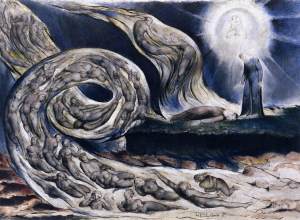 The Dante Club by Mathew Pearl
The Dante Club by Mathew Pearl
I quite enjoyed this historic literary romp through post civil war Boston. The snarky, competitive literary cliques, the plight of the veterans, the hypocrisy of liberal white race relations, and above all those disreputable, scandalous Italians and Catholics, Dante included.
William Dean Howells, James Russell Lowell and Charles Eliot Norton are divided by much but united by their protective worship of Henry Wadsworth Longfellow and their membership in the Dante Club, working together with Longfellow to finish the translation of The Divine Comedy. Oh and yes, I nearly forgot, there are gruesome, oddly familiar murders, dangerous occurrences and a mystery to solve.
I heartily recommend The Dante Club to middle-aged English and History majors and minors, but I think some avid mystery and detective fans will find the most engaging aspects of this novel to be a bit lame. Sorry for them.
But the best was that Mathew Pearl brought Dante back to me on an appetising platter; I dusted off a yellowing paperback edition of The Inferno that last saw the light of day 35 years ago in a collegiate dorm room, and quickly discovered that the Henry Wadsworth Longfellow translation, is, for plain speaking Americans, the King James Bible of Dante translations. You can find it free on the Project Gutenberg. The University of Texas Austin has a rich, interactive, multimedia study guide with Dante-inspired art and recordings in Italian of significant passages, called Danteworlds.
In the 2nd circle of hell, Virgil and Dante are greeted by Minos, who judges all who enter and then winds his nasty tail around them a
certain number of times to designate to which circle of hell they will be eternally confined. Fearsome Minos snarls and growls, and all the sinners line up eager to confess, even though it’s a bit late for that. Why is that? Why are they eager? You’d think that after a life-long practice of denial, justification and rationalisation all the sinners would be in an habitual groove. I suppose it’s because Minos scares the hell out of them. Check out the snake’s meal. Dante too almost gets judged, but Virgil sets things straight and the pair find themselves in the storm-tossed torture chamber of the Lustful:
I came into a place mute of all light,
Which bellows as the sea does in a tempest,
If by opposing winds ‘t is combated.The infernal hurricane that never rests
Hurtles the spirits onward in its rapine;
Whirling them round, and smiting, it molests them.When they arrive before the precipice,
There are the shrieks, the plaints, and the laments,
There they blaspheme the puissance divine.I understood that unto such a torment
The carnal malefactors were condemned,
Who reason subjugate to appetite.

The Lovers Whirlwind by William Blake; after speaking to Francesca and Paolo, Dante faints dead away
The rushing slipstream of lovers eternally entwined and buffeted whip by, and Virgil points out Semiramis, Cleopatra, Helen, Achilles, Paris, Tristan, and a thousand more “Whom Love had separated from our life“. Dante is utterly gobsmacked, full of pity and completely bewildered that all the great lovers of myth and history are in hell. What, love is not redemption?
At this point Dante notices a particularly heart-rending pair, Francesca and Paola, who stop by because Dante’s heart is soft with pity for them.
Paolo and Francesca were historical contemporaries of Dante. By most accounts, Francesca is the victim of a manipulative and deceptive political marriage to Paolo’s brother Gianciotto, a capable general and heir, but hideously deformed, ugly, and some say, darn right mean. Francesca and Gianciotto meet, but Gianciotto has been swapped with his handsome brother Paolo, and it is love at first sight for the pair. Francesca only learns of the ruse on the morning after the wedding, when she awakes to find the hideous Gianciotto by her side, whereupon she throws a fit. So unfair.
But here’s the kicker, when Dante enquiries about what got the party going, Francesca replies:
“One day we reading were for our delight
Of Launcelot, how Love did him enthral.
Alone we were and without any fear.Full many a time our eyes together drew
That reading, and drove the colour from our faces;
But one point only was it that o’ercame us.When as we read of the much-longed-for smile
Being by such a noble lover kissed,
This one, who ne’er from me shall be divided,
Kissed me upon the mouth all palpitating.
Galeotto was the book and he who wrote it.
That day no farther did we read therein.”
Related Articles
- Divine Noir. From Hell to Heaven in Seymour Chwast’s graphic take on Dante (eyemagazine.com)
- Seymour Chwast: Dante’s ‘Divine Comedy’ As Graphic Novel By Seymour Chwast (huffingtonpost.com)
A bit about the Longfellow translation:
- Poem of the week: From Longfellow’s translation of the Divine Comedy (guardian.co.uk)
And a couple more recent efforts of the Dante-inspired:










